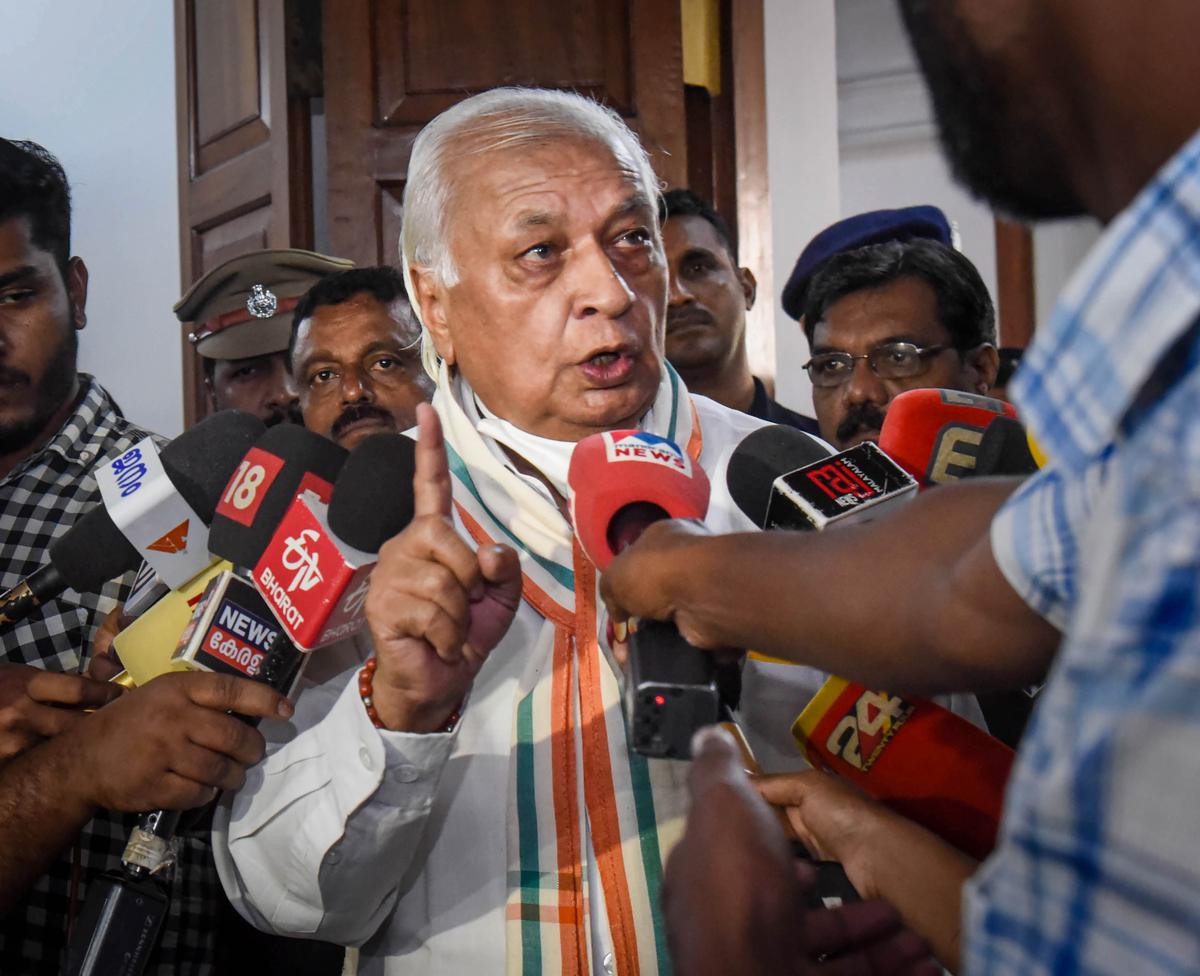
The Governor versus the government
The Hindu
Governance and public interest will likely be the casualities of the stand-off
Injured egos are not rare in the cut and thrust of politics. But the bitter rift between a Governor and Chief Minister has seldom played out as forcefully in public view as it has in Kerala over the past week. The escalating tensions between Governor Arif Mohammad Khan and Chief Minister Pinarayi Vijayan has assumed centre stage yet again in State politics. However, the latest tangle seems acrimonious compared to the relatively tame disputes of the past.
The incident that precipitated the stand-off was the CPI(M)’s boycott of the Vice-Chancellor of the APJ Abdul Kalam Technological University (KTU), Ciza Thomas. As Chancellor of State universities, Mr. Khan had appointed her to the post, bypassing government nominees. He did so after the Supreme Court set aside the appointment of Rajasree M.S. as Vice-Chancellor of KTU, finding it violative of the norms of the University Grants Commission (UGC).
Unleashing a full-blown attack against the LDF government, Mr. Khan alleged that the government had “initiated the process of the collapse of the constitutional machinery” by threatening him with dire consequences and not permitting the Vice-Chancellors appointed by him from performing their duties. He dared the ruling front to “barge into Raj Bhavan” and “attack” him “on the street” if they “had the guts”. Mr. Khan also said he would attend the sit-in protest by LDF workers in front of the Raj Bhavan on November 15 if the leaders of the ruling front were ready to debate with him publicly.
Mr. Khan’s comments on Mr. Vijayan signalled the growing chasm between the two offices. He alleged that Mr. Vijayan “had to go home to change his clothes” when an IPS officer removed his gun from the holster to prevent the CPI(M) leader from freeing a party worker from police custody in Kannur.
The Governor threw down the gauntlet to the government by ordering other Vice-Chancellors to submit their resignations. The premise for this controversial directive was that the government had appointed these Vice-Chancellors through the same process deemed unlawful by the Supreme Court in the KTU Vice-Chancellor’s case.
The government got a brief respite from the wrestling match with Mr. Khan over university administration on November 8, when the Kerala High Court restrained him as Chancellor from passing final orders on the show-cause notices issued to the Vice-Chancellors.
Mr. Khan then courted controversy during a press conference when he debarred journalists from Kairali TV and MediaOne TV from covering the event, deeming them politically partisan. He was immediately criticised by civil society for “curtailing” press freedom. The Editor’s Guild of India protested the “selective targeting of media channels by a person occupying high constitutional office”. With the exception of the BJP, the LDF and the Congress-led Opposition condemned Mr. Khan’s “blackballing” of the two media houses. Journalist unions marched in protest to the Raj Bhavan.

Under the NBS, newborns are screened for communication disorders before they are discharged from the hospital. For this, AIISH has collaborated with several hospitals to conduct screening which is performed to detect hearing impairment and other developmental disabilities that can affect speech and language development. The screening has been helping in early intervention for those identified with the disorders, as any delay in the identification poses risk and affects successful management of children with hearing loss, according to AIISH.












